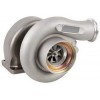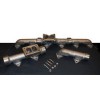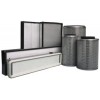Caterpillar inlet and exhaust systems
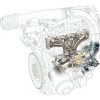
The inlet system Caterpillar is designed to allow the engine the required amount of air and the formation of a fuel-air mixture. The term "intake system" has appeared with the development of the design of internal combustion engines, especially with the advent of a direct fuel injection system. The equipment for supplying the engine with air ceased to be just an air duct, but turned into a separate system.
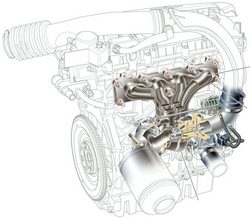 To improve the filling of the cylinders with air, the Caterpillar turbocharger is used to increase the power in the design of the modern diesel injection system.
To improve the filling of the cylinders with air, the Caterpillar turbocharger is used to increase the power in the design of the modern diesel injection system.
The design of the intake system includes an air intake, a Caterpillar air filter, a throttle, an intake manifold. For individual engine designs, intake valves are used. Tubes connect all elements of the intake system.
Air intake provides air intake from the atmosphere and is a branch pipe of a certain shape.
The Caterpillar air filter serves to purify air from mechanical particles. The filter element is made of special paper and placed in a separate housing. The filter element of the air filter Caterpillar is an expendable material, that is has a limited service life. Depending on the operating conditions of the Caterpillar equipment, the life of the filter element may vary.
The intake manifold distributes the airflow through the cylinders of the engine and gives the air the necessary discharge. The discharge that occurs in the intake manifold is used in the fuel injection system.
How the Caterpillar Intake System Works
The operation of the intake system is based on the difference in pressure in the engine cylinder and the atmosphere occurring at the intake stroke. The volume of incoming air is proportional to the volume of the cylinder. The amount of incoming air is regulated by the position of the throttle Caterpillar valve, depending on the mode of operation of the engine.
The Caterpillar exhaust system is designed to remove exhaust gases from the Caterpillar engine cylinders, to cool them, and to reduce noise and toxicity.
The exhaust system includes a number of structural components, including the exhaust Caterpillar manifold, particulate filter, silencer and connecting pipes.
All the components of the exhaust system are located underneath the Caterpillar Construction equipment.
